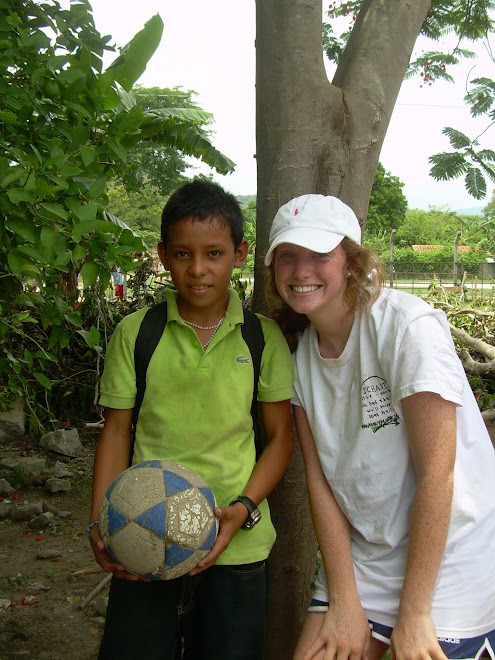After a bumpy flight filled with my anxieties of the unexpected, my over-packed suitcase and I piled onto a bus and began to drive through the beautiful countryside. I had woken up that morning in the comfort of my own home, and now was anxiously anticipating what was to come as I began my mission trip to El Salvador. I had imagined the country of El Salvador to be dry and desolate filled with nothing but stray animals and littered trash. However, whether I liked it or not, I was now rolling along the curvy roads of El Salvador where I would be working to build a high school for the next week. Looking out the window at the miles of nothing but green pastures and beautiful mountains, I decided maybe this place was not so bad after all. “We are here!” As our 18-passenger bus with its folding seats trudged up the unpaved hills of El Salvador, my attitude from earlier that morning began its 180-degree turn.
On my first day of work in the small town of Copapayo, El Salvador, I encountered a multitude of kind and welcoming faces. However, one in particular caught my attention. His name was Alexei. Alexei came to school everyday dressed in the same clothes as the day before, and the same broken sandals to attempt to protect his feet. Alexei and I first connected on the soccer field as we worked together as teammates to score on a goal made from two pieces of trash. We spent hours passing the soccer ball back and forth, dancing to Latino music, and eating tortillas quickly building a strong foundation of friendship. Of course our conversation consisted of no more than my few butchered attempts to say "Hola! Como estas?" followed by his returned looks of confusion and laughter, yet we still developed a tie of genuine bond.
On our last day of work in El Salvador, I said a sad good-bye to Alexei after the party we threw for the students at the school in Copapayo. About ten minutes later, I saw a familiar face wandering back to the worksite. It was Alexei again. After making friendship bracelets for one another out of some old yarn, we said a second round of farewells and parted ways. Yet after another hour, as our group began to board the bus to leave Copapayo, I looked up one last time. Alexei stood standing on that same soccer field where we had first met. Running up to me and planting a kiss on my cheek, he and I shared a tearful last "adios," for the third and final time. This bond between Alexei and me was a tie that would last forever. Though I knew I would never see his face again, he impacted me in many ways, and taught me the value of life comes not from material wealth, but from relationships and personal experiences.
As I arrived back at home the next week, I no longer found myself dwelling on the comforts of my own home as I had done early that morning of my departure, but instead found myself looking at those "comforts" of my own life with new eyes. Compared to the cardboard boxes I had seen families like Alexei's live in, my own house was a mansion. To their three daily tortillas, our refrigerator was overflowing. Coming back that third time to say good-bye, Alexei was my reminder of what genuine happiness looks like. Though Alexei and I were faced with cultural, lingual, and economic barriers, his passion and love of life inspired me to live a more wholesome life such as his. While I was a 16 year old girl with a closet full of shoes and a drawer full of shorts, this nine-year-old boy, with holes in his shoes and a single pair of shorts to wear for his every day, was never seen without a smile on his face, illuminating life's light.
In our world today, we are held to a certain standard of perfection, in which it is easy to forget the element of truth and substance in life. Embedded into the heart of the American consumer based society, we are told what clothes to wear, what food to eat, and how we should live, assuming the attainment of these things will result in happiness. In an endless chase for achievement and success, we find ourselves entangled in the materialistic web spun by society's spider, having lost sight of life's true meaning. Can we even begin to fathom life as Alexei, with hardly any money, a single outfit, and the same food everyday, and at the same time imagine happiness? After my cultural exchange and witness in Alexei, I found my eyes had been reopened to a new perspective on life.
